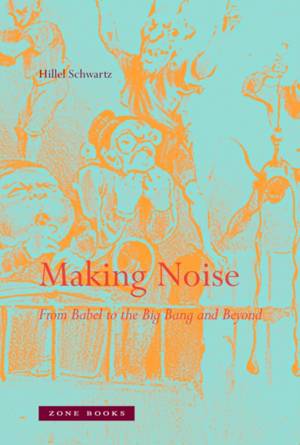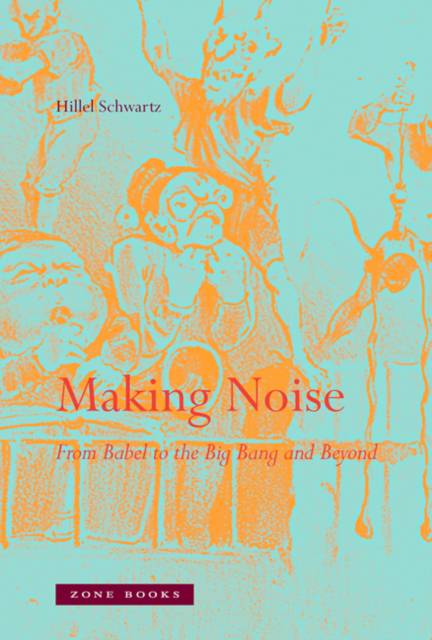
- Retrait gratuit dans votre magasin Club
- 7.000.000 titres dans notre catalogue
- Payer en toute sécurité
- Toujours un magasin près de chez vous
- Retrait gratuit dans votre magasin Club
- 7.000.0000 titres dans notre catalogue
- Payer en toute sécurité
- Toujours un magasin près de chez vous
63,95 €
+ 127 points
Description
When did the "silent deeps" become cacophonous and galaxies begin to swim in a sea of cosmic noise? Why do we think that noises have colors and that colors can be loud? How loud is too loud, and says who? Attending to sounds at once physical and political, Hillel Schwartz listens across millennia for a trajectory of changes in the Western experience and understanding of noise.
From the uproarious junior gods of Babylonian epic to crying infants heard over baby monitors, from doubly-mythic Echo to loudspeaker feedback, Making Noise follows "unwanted sound" on its path through terrains domestic and industrial, legal and religious, musical and medical, poetic and scientific. At every stage of this tour de force, crafted in the inimitable prose of one of America's most innovative cultural historians, Schwartz widens and deepens our sense of the reverberations of soundful lives, urban, suburban, rural, or lost. Never so much a question of the intensity of sounds as of the intensity of relationships, the continual redefinition of noise is a sensitive register of contending generations, classes, and genders. Drawing upon the archives of children's authors and anti-noise activists, catalogs of fireworks and dental drills, letters of worried parents and marine biologists, Making Noise traces the process by which noise has become as potently metaphorical as the original Babel. In astrophysics as in fiction, in economics as in art, noise is no longer bound to acoustic experience. Following the visuals of his Culture of the Copy, Hillel Schwartz has spent two decades listening in to that which, literally and figuratively, makes a perfect copy impossible -- those booms, hisses, and rasps that are at once the burden and token of our shared humanity. Unprecedented in its scope, this book will transform sound studies and contemporary assessments of cacophonies loud or uncomfortably quiet.Spécifications
Parties prenantes
- Auteur(s) :
- Editeur:
Contenu
- Nombre de pages :
- 912
- Langue:
- Anglais
- Collection :
Caractéristiques
- EAN:
- 9781935408123
- Date de parution :
- 29-11-11
- Format:
- Livre relié
- Format numérique:
- Genaaid
- Dimensions :
- 163 mm x 231 mm
- Poids :
- 1428 g

Les avis
Nous publions uniquement les avis qui respectent les conditions requises. Consultez nos conditions pour les avis.






